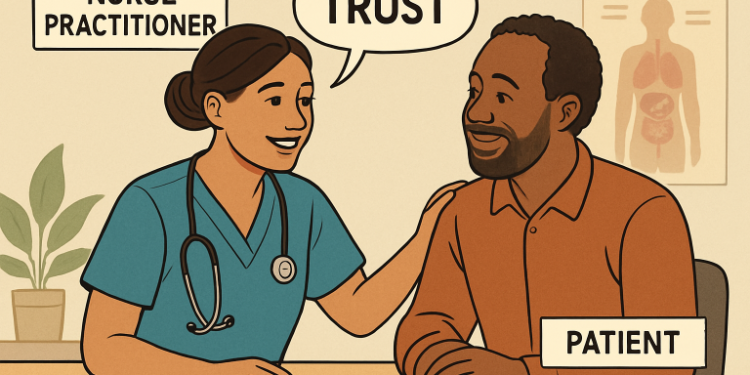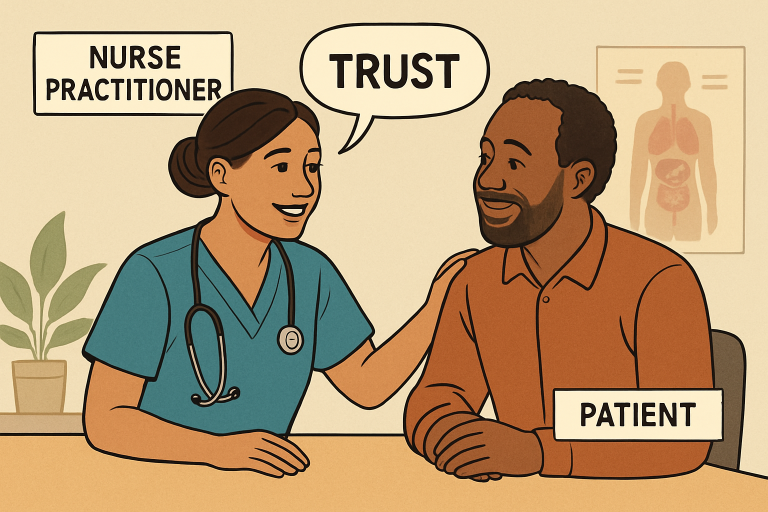Why Nurse Practitioner Roles Are Shaping the Future of Modern Healthcare

Table of Contents
- 1 The Rise of Nurse Practitioners in Modern Healthcare
- 2 Defining the Nurse Practitioner Role
- 3 Better Access to Care: Bridging Gaps Nationwide
- 4 Clinical Outcomes and Patient Satisfaction
- 5 Cost-Effectiveness in Advanced Practice
- 6 Collaboration with Physicians and Healthcare Teams
- 7 Paths for Growth and Specialization
- 8 Future Trends and the Impact of Technology
The Rise of Nurse Practitioners in Modern Healthcare
In response to rapid changes and ongoing challenges in the healthcare system, nurse practitioners (NPs) have become invaluable contributors in delivering care to patients across the United States. One clear sign of their growing importance is the surge in people searching for nurse practitioner jobs near me—a reflection of both expanding career opportunities and the critical need for these advanced practice clinicians.
As communities face an ongoing shortage of primary care physicians and strive to improve patient care outcomes, NPs have stepped in to fill the gaps. These professionals are trained to provide comprehensive care and are increasingly recognized for their ability to deliver quality services in various settings. Their presence is now vital to hospitals, clinics, community health centers, and rural outreach teams.
Defining the Nurse Practitioner Role
Nurse practitioners are highly educated, holding either a master’s or doctoral degree in nursing. Their advanced training allows them to assess patients, order diagnostic tests, diagnose illnesses, and initiate treatment plans. This expanded scope of practice enables them to address complex health needs and supports preventive care and holistic management for individuals and families. Unlike registered nurses, NPs often have prescriptive authority and the autonomy to manage patient care from diagnosis through follow-up, particularly in states with full practice authority.
Better Access to Care: Bridging Gaps Nationwide
Healthcare accessibility remains a significant issue for many Americans, particularly in rural and underserved urban areas. Nurse practitioners have stepped up, making primary and specialty care more accessible where physician shortages are most acute. For example, NPs often serve as the primary provider at community health clinics and rural practices, sometimes the only clinician available for miles. Their training supports routine healthcare delivery, chronic disease management, and preventive interventions, significantly improving health outcomes for high-need populations.
Clinical Outcomes and Patient Satisfaction
The effectiveness of nurse practitioners is well-documented through research and patient feedback. Major studies published in resources such as JAMA report that care provided by NPs is associated with equal or improved patient outcomes and satisfaction compared to physician-led care. Nurse practitioners are firm in building patient rapport, educating individuals on disease management, and advocating for preventive health—all contributing factors to reduced hospitalization rates and better long-term results.

Cost-Effectiveness in Advanced Practice
Healthcare systems worldwide face increasing pressure to reduce costs while still meeting, or even exceeding, established standards of care. In this challenging environment, nurse practitioners play a critical role in delivering high-quality, cost-effective services. Their broad scope of practice—which includes diagnosing conditions, managing treatment plans, prescribing medications, and providing patient education—allows them to handle a wide range of cases efficiently. This results in lower per-visit costs, improved patient throughput, and reduced strain on overburdened healthcare resources. By taking on responsibilities traditionally reserved for physicians, NPs help expand access to care, especially in underserved areas. Policy analyses, such as those featured in Health Affairs, emphasize that integrating NPs more fully into healthcare delivery models benefits patient outcomes and offers a sustainable approach to balancing quality care with budget constraints.
Collaboration with Physicians and Healthcare Teams
Multidisciplinary, team-based care has become a cornerstone of modern healthcare, ensuring patients receive comprehensive, well-coordinated treatment. Nurse practitioners are uniquely positioned to thrive in such collaborative environments due to their extensive training, emphasizing effective communication, active listening, and partnership-building skills. They work closely with physicians, specialists, pharmacists, mental health professionals, and other providers to integrate diverse expertise into a unified care plan. This approach addresses a patient’s physical, emotional, and social health. In complex or chronic disease management, where multiple interventions may be required, seamless coordination among team members can significantly improve outcomes. Nurse practitioners are pivotal in delivering holistic, patient-centered care that supports long-term wellness by fostering trust and clarity among providers and patients.
Paths for Growth and Specialization
The avenues available for nurse practitioners continue to grow rapidly. Beyond primary care, many NPs specialize in mental health, women’s health, gerontology, oncology, palliative care, emergency medicine, and cardiology. This ongoing expansion, fueled by the aging population and increasing chronic disease rates, is predicted to continue according to the latest trends in advanced practice nursing. Leadership opportunities, policy development, academia, and research also present fulfilling pathways for NPs looking to impact healthcare at a systemic level.
Future Trends and the Impact of Technology
Looking ahead, integrating telehealth, mobile health apps, and remote patient monitoring will only elevate the role of nurse practitioners in delivering accessible, efficient care. These innovations make it feasible for NPs to support patients in rural, homebound, or high-risk categories—breaking down longstanding barriers to care. Staying current with emerging technologies and medical knowledge will ensure nurse practitioners continue to lead and adapt within a rapidly evolving healthcare landscape.
Nurse practitioners are becoming pivotal in transforming healthcare delivery, bridging gaps in access while enhancing quality and patient satisfaction. Their advanced clinical training and a patient-centered approach enable them to provide comprehensive care across diverse settings. As demand for healthcare services grows, NPs are stepping into expanded roles, offering preventive care, managing chronic conditions, and improving health outcomes. Their adaptability to new technologies and evidence-based practices positions them as leaders in an evolving system. By addressing immediate medical needs and long-term wellness goals, NPs meet today’s challenges and shape a more accessible, efficient, and compassionate healthcare future.

